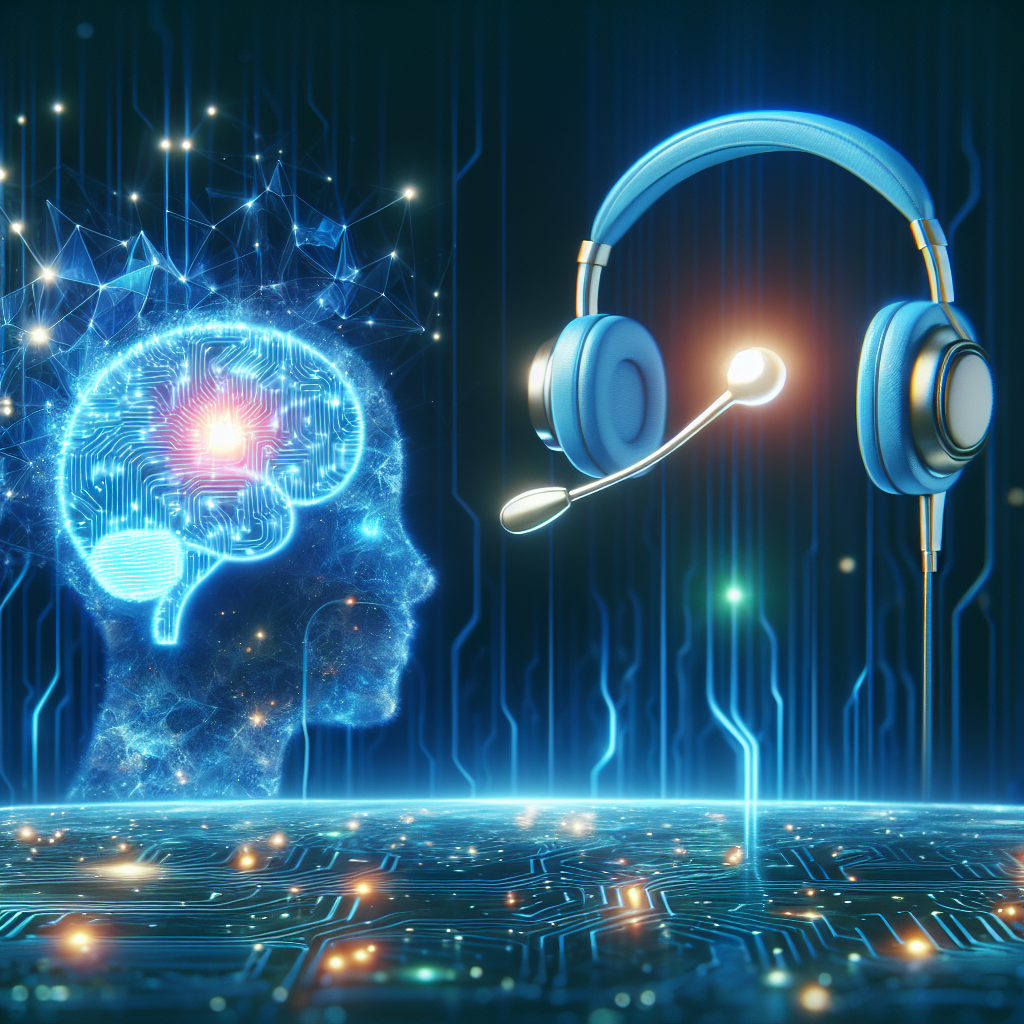The Impact of AI on Customer Service Automation
In recent years, the rise of artificial intelligence (AI) has revolutionized the way businesses interact with their customers. One of the most significant areas where AI has made a profound impact is in customer service automation. By leveraging AI technologies such as chatbots, virtual assistants, and machine learning algorithms, companies can streamline their customer service operations, improve efficiency, and enhance the overall customer experience.
AI-powered chatbots have become increasingly popular in customer service automation. These virtual assistants are programmed to interact with customers in a conversational manner, providing quick and accurate responses to their queries. Chatbots can handle a wide range of customer inquiries, from basic troubleshooting to more complex issues, without the need for human intervention. This not only helps companies reduce their customer service costs but also ensures that customers receive timely and consistent support.
Moreover, AI-powered chatbots can be available 24/7, providing round-the-clock customer service to users across different time zones. This level of accessibility and responsiveness is crucial in today’s fast-paced business environment, where customers expect instant gratification and seamless interactions with brands. By leveraging AI technology, companies can meet these expectations and deliver a superior customer experience.
In addition to chatbots, AI has also enabled companies to personalize their customer service interactions. Machine learning algorithms can analyze customer data and behavior patterns to tailor responses and recommendations to individual preferences. This level of personalization not only enhances the customer experience but also helps companies build stronger relationships with their customers and increase customer loyalty.
Furthermore, AI can automate repetitive tasks and processes in customer service, such as ticket routing, issue resolution, and data entry. By automating these routine tasks, companies can free up their human agents to focus on more complex and high-value tasks, such as handling escalated issues or providing personalized support to VIP customers. This not only improves the efficiency of customer service operations but also enables companies to deliver a more personalized and proactive level of support to their customers.
Despite the numerous benefits of AI-powered customer service automation, some customers may still have concerns about the impact of AI on their interactions with companies. To address these concerns, companies can proactively provide information and resources to educate customers about the use of AI in customer service. By being transparent about how AI is being used and the benefits it brings, companies can help alleviate any apprehensions customers may have about interacting with AI-powered systems.
Overall, the impact of AI on customer service automation is undeniable. By leveraging AI technologies such as chatbots, virtual assistants, and machine learning algorithms, companies can streamline their customer service operations, improve efficiency, and enhance the overall customer experience. From personalized interactions to round-the-clock support, AI has transformed the way companies engage with their customers and set new standards for customer service excellence.
FAQs:
Q: Will AI completely replace human customer service agents?
A: While AI-powered chatbots and virtual assistants can handle a wide range of customer inquiries, human agents will still play a crucial role in customer service. Human agents can provide empathy, emotional intelligence, and complex problem-solving skills that AI may not be able to replicate. AI is meant to augment human agents, not replace them entirely.
Q: How can companies ensure that AI-powered customer service is secure and protects customer data?
A: Companies can implement robust security protocols and encryption methods to protect customer data when using AI-powered customer service systems. It is essential to comply with data protection regulations, such as GDPR, and regularly update security measures to prevent data breaches and unauthorized access.
Q: How can companies measure the effectiveness of AI-powered customer service automation?
A: Companies can track key performance indicators (KPIs) such as response time, resolution rate, customer satisfaction scores, and cost savings to measure the effectiveness of AI-powered customer service automation. By analyzing these metrics, companies can identify areas for improvement and optimize their customer service operations.
Q: What are the challenges of implementing AI-powered customer service automation?
A: Some challenges of implementing AI-powered customer service automation include training AI models, integrating AI systems with existing infrastructure, ensuring data accuracy and quality, and managing customer expectations. Companies should carefully plan and strategize their AI implementation to overcome these challenges and maximize the benefits of AI in customer service.

